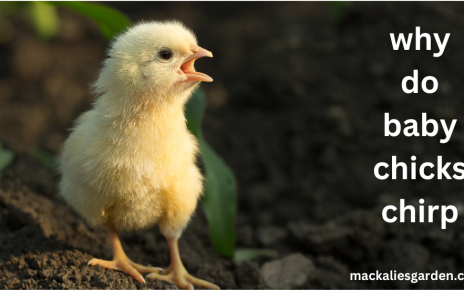Do you have chickens roaming around your backyard and want to know if their egg-laying will slow down if the coop isn’t as clean? You’ve come to the right place! Having an unclean or disorganized coop can be a significant cause of reduced egg production in chickens, but with just a few cleaning steps and some smart organizing, you can keep your chicken’s egg production running smoothly.
Let’s look at why dirty coops are bad for chickens and how often they need cleaning – and provide you with simple tips – so that these fantastic animals stay healthy while still providing us with farm-fresh eggs each day.
Will chickens stop laying if the coop is dirty?
Hello, fellow chicken enthusiasts! As a seasoned chicken farmer, I am often asked whether the cleanliness of chicken coops affects and prevents chickens from laying eggs. The answer is yes; the cleanliness of a coop significantly impacts the health, stress levels, and laying habits of our feathered friends.
Today, we’ll dive into the effects of clean and dirty coops on chickens and explore practical ways to maintain a healthy environment for optimized laying habits.
Clean vs. Dirty Coops
Health
A clean coop contributes to your flock’s overall health and well-being, while a dirty coop can lead to illnesses and parasites such as mites and lice. Chickens are susceptible to respiratory issues when they reside in a coop with excess dust, ammonia from droppings, or mold. These health hazards can impact their egg production.
Stress Levels
Chickens are sensitive creatures and can become stressed when exposed to poor environmental conditions. Dirty coops with an accumulation of waste, pests, or unpleasant odors contribute to the stress of your flock, which can impact their egg-laying habits.
Laying Patterns and Egg Quality
Environmental Factors
Chickens require specific conditions to lay eggs effectively. High humidity levels can lead to mold growth in coops, while inconsistent feed and water access contribute to stress and potential malnutrition. All these factors can be detrimental to egg production.
Egg Quality
Dirty coops affect egg production rates and the quality of the eggs. Eggs laid in filthy environments are more likely to be contaminated with bacteria or dirt, which can affect their freshness, taste, and safety for human consumption.
Practical Advice for a Clean Coop
- Regular Cleaning: To maintain a clean coop, make a habit of removing soiled bedding, droppings, and any uneaten food daily. Replace the bedding with fresh materials at least once a month or more frequently if it becomes significantly wet or soiled.
- Ventilation: Ensure your coop has proper ventilation to let in fresh air and release excess humidity. Adequate airflow helps to dissipate odors and ammonia build-up, providing a healthier environment for your chickens.
- Pest Control: Implement a pest control plan to minimize the risk of infestations. Use diatomaceous earth sprinkled around the coop or in areas where pests commonly dwell. Also, routinely inspect your coop for signs of pests and take prompt action if any are discovered.
- Feeding: Provide adequate feed and water sources to ensure the nutritional needs of your flock are met. Consider elevated feeders and waterers that prevent waste from soiling feed and water supplies.
By adhering to these simple guidelines, you’ll be able to maintain a clean and healthy coop that promotes optimized laying habits and ensures the well-being of your chickens. Have any more questions? Feel free to reach out.
7 Reasons Why Chickens Stop Laying Eggs
Chickens might stop laying eggs for various reasons, ranging from health issues to environmental changes. Identifying the cause can help you address the problem and restore your flock to producing eggs. Here are seven common reasons why chickens stop laying eggs:
- Nutritional deficiencies: Chickens require a balanced diet to produce healthy eggs consistently. A lack of essential nutrients, like protein or calcium, can decrease egg production. Ensure your chickens get enough quality food and provide them with supplements, like oyster shells, to maintain a balanced diet.
- Stress: Like humans, stress can negatively affect chickens and their egg production. Everyday stressors include sudden changes in their environment, excessive noise, or harassment from predators. Ensure your chickens have a consistent, calm environment to maintain healthy egg production.
- Age: As chickens age, their egg production naturally declines. Hens usually begin laying eggs at five to six months old, with peak production at about one year. After two years, you may notice a decrease in their egg production. Aging is a natural process and may be one of the reasons for reduced egg-laying.
- Molting: Chickens go through a yearly process called molting, where they shed and regrow their feathers. Hens might stop laying eggs during this period, which can last several weeks. Energy and nutrients that usually go into egg production are diverted to growing new feathers. Once the molting process is complete, egg-laying should resume.
- Insufficient light exposure: Chickens need about 14-16 hours of daylight daily to lay eggs regularly. A daylight reduction, especially during winter, can impact their egg production. Adding supplemental lighting to your chicken coop might help maintain consistent egg-laying throughout the year.
- Health issues: Parasites, diseases, and infections can affect your chickens’ overall health, causing a decline in egg production. Monitor your flock closely for any signs of illness and contact a veterinarian if necessary. Maintaining a clean coop, proper nutrition, and good hygiene can prevent many health issues.
- Broodiness: Sometimes, hens stop laying eggs because they want to hatch chicks. This behavior, called broodiness, involves the hen sitting on eggs or an empty nest for long periods. While it’s a natural behavior, broody hens won’t lay new eggs. To reset a broody hen and encourage egg production, you might need to remove her from the nest or provide a separate area until she returns to normal behavior.
Taking care of your flock’s well-being can help keep them happy, healthy, and productive. By understanding these seven reasons chickens stop laying eggs, you can address any potential problems and ensure your chickens continue to provide fresh eggs for your family.
Summary
Maintaining a healthy and clean environment for your chickens is essential for egg production. Chickens may stop laying eggs for various reasons, such as nutritional deficiencies, stress, age, molting, insufficient light exposure, health issues, or broodiness.
You can take steps to ensure that your flock’s needs are met and monitor them closely for any signs of illness or behavioral changes. With proper care and attention, your chickens can continue to provide fresh eggs for you and your family.



